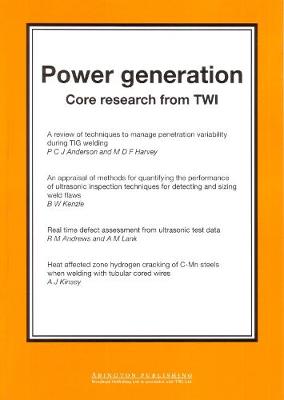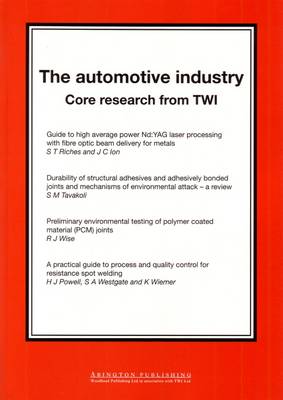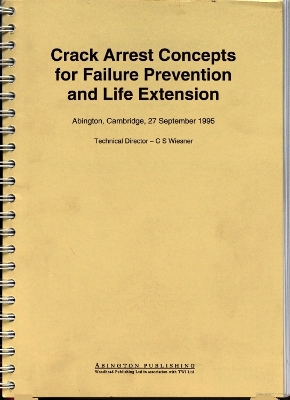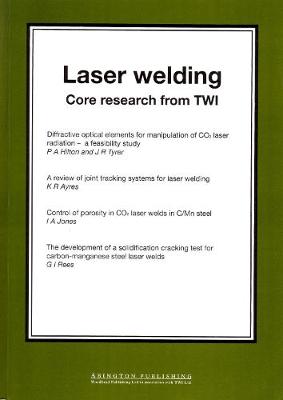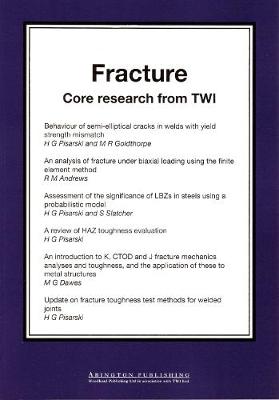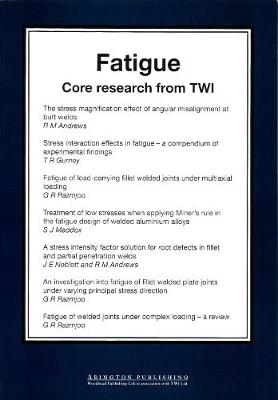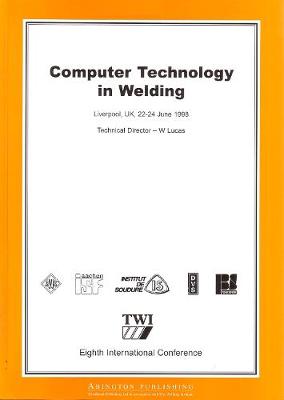Woodhead Publishing Series in Welding and Other Joining Technologies
7 total works
Contains the following reports: A review of techniques to manage penetration variability during TIG welding; An appraisal of methods for quantifying the performance of ultrasonic inspection techniques for detecting and sizing weld flaws; Real time defect assessment from ultrasonic test data; Heat affected zone hydrogen cracking of C-Mn steels when welding with tubular cored wires.
Research reports carried out by TWI staff for their industrial members.
Crack Arrest Concepts for Failure Prevention and Life Extension
by Gyoujin Cho
Published 30 April 1996
The proceedings of a seminar held at TWI in September, 1995, focusing on crack arrest philosophy which aknowledges that a brittle crack is arrested when it emerges from the critical region. Papers from prestigious researchers presented a critique and assessment of the theory and its application under: Introduction to crack arrest concepts; Recent trends in crack arrest research; Application of crack arrest concepts.
Research carried out by TWI staff for The Welding Institute’s industrial members. This title includes diffractive optical elements for manipulation of CO2 laser radiation - a feasibility study; A review of joint tracking systems for laser welding; control of porosity in CO2 laser welds in C/Mn steel; the development of a solidification cracking test for carbon-manganese steel laser welds.
Research reports originally prepared by TWI for their Industrial Members.
Research reports originally prepared for TWI’s Industrial Members.
While computer systems have traditionally been used in welding engineering for modelling, equipment control, manufacturing support and production monitoring they are now becoming essential tools for information handling, quality control and education and training.
The papers presented at this conference reflect the significant advances that have been made in emerging technologies, expert systems, neural networks and multimedia. The application of the innovative control systems and software presented here will enable companies to maintain a competitive edge by improving information control and product value while at the same time reducing manufacturing and production costs.
The book is of value to both established and prospective users of computers in the welding industry and to all needing to keep in touch with the latest advances in computer technology.
The papers presented at this conference reflect the significant advances that have been made in emerging technologies, expert systems, neural networks and multimedia. The application of the innovative control systems and software presented here will enable companies to maintain a competitive edge by improving information control and product value while at the same time reducing manufacturing and production costs.
The book is of value to both established and prospective users of computers in the welding industry and to all needing to keep in touch with the latest advances in computer technology.
